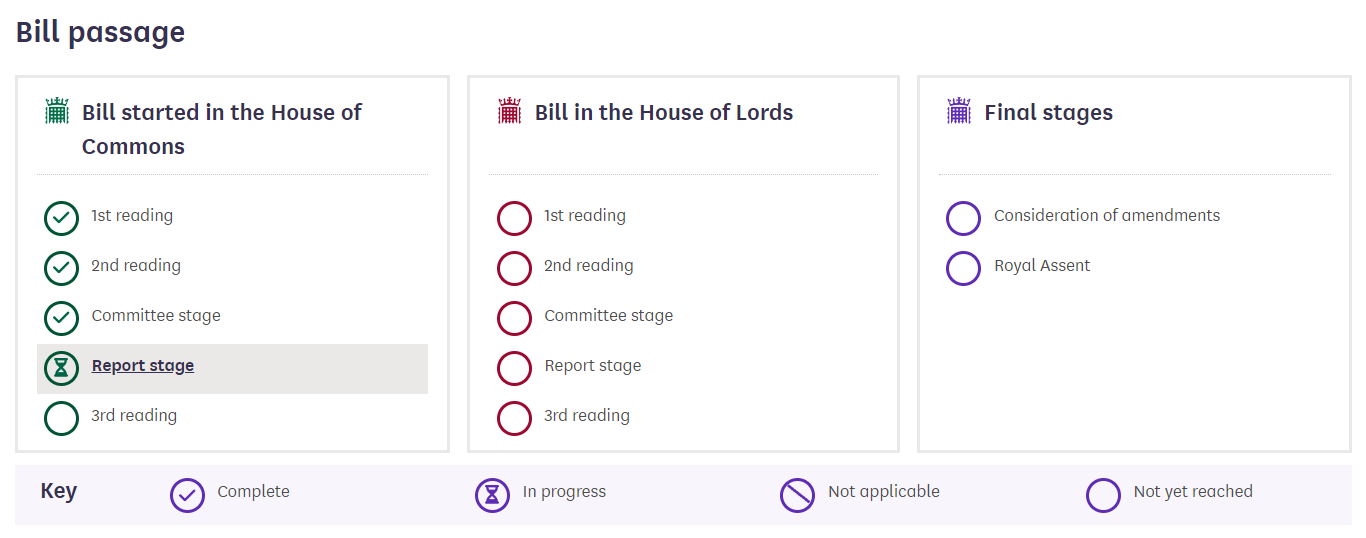What's the latest on the Rental Reform Bill?
Read the lastest news on Rental Reform. With extensive experience in the property industry and as President Elect of ARLA Propertymark, Angharad brings valuable insights into the rental market. Read on for her expert advice and updates on the rental industry.
As a letting agent and President Elect of ARLA Propertymark, I’ve been following the Rental reform Bill’s progress very closely through the courts since earlier in 2023. You may have been hoping it had all been brushed under the carpet, unfortunately not (yet). Here’s a quick run-down of its progress so far;
Background on the Rental Reform Bill:
The rental reform bill, first introduced to parliament on 17th May 2023 aims to address various issues within the rental market, including tenant protections, rent control measures, and landlord responsibilities. Since its introduction, the bill has sparked considerable debate among stakeholders, with many landlords expressing concerns about potential financial burdens and tenants advocating for stronger rights and increased affordability.
Progress throughout 2023:
In 2023, the bill faced its first legal challenges as it started its passage through the courts. Initial reaction from landlord and agent groups gave support for the need for redress, in the form of an independent, not for profit, Landlord Ombudsman. We also saw support for the softening of areas that were giving landlords major concerns – such as the ability to evict anti-social tenants or those who consistently miss rental payments.
However, there were significant concerns to the uncertainty the bill would cause the market creating a further imbalance to supply and demand. These were around the removal of fixed term tenancies, especially in the student market. Plus, the removal of the no-fault route for evictions, which leaves in place a possession process which is significantly flawed both in terms of the current permitted grounds for possession and the already groaning court system. In some cases, the process from serving notice to obtain possession had been taking in excess of 12 months and in cases of rent arrears of at least two months, this has meant potentially 14 months of receiving no rental income without being able to obtain possession.
In late 2023, during the second reading of the bill on 23 October, the government confirmed that it would not proceed with the abolition of the Section 21 notice until a more robust court system was introduced. This provides assurance that the government will not ban this mechanism until an alternative for our already groaning courts system is considered. The government’s target areas in achieving this robust system included:
- Digitising more of the court process to make it more accessible for landlords to use.
- Improving bailiff recruitment and reducing the administrative tasks of bailiffs to facilitate being able to prioritise possession enforcement.
- Exploring the prioritisation of certain cases, including anti-social behaviour.
- Providing early legal advice and better signposting for tenants – to help tenants find appropriate housing solutions.
Furthermore, later in November 23 during the committee stage, the government also added amendments to the Renters Reform Bill to make it illegal for landlords and letting agents to place blanket bans on tenants who receive benefits or have children.
Other changes at this stage were that the 'Decent Homes Standard' would be applied to the sector for the first time, further support to protect the cyclical nature of student tenancies, and an overhaul of 'Rent Repayment Orders'.
Progress in 2024:
In 2024, the battle over the rental reform bill continues to rumble on as both landlords and tenants await further rulings from the courts. Landlord and agent associations continue to argue against certain provisions of the bill relating to rent control and eviction protections, citing potential negative impacts on property owners' financial interests.
The bill is now at report stage in the House of Commons as per the below image and therefore has a long way to go;

The delays are (apparently) due to divisions in the Conservative Party about whether the bill has the right “balance” with many conservative MPs who are often also landlords opposing the various elements listed above. If and when it does complete the remaining stages in the House of Commons, it will then need to go through the House of Lords.
The delay means time is now very tight for the bill to receive Royal Assent before parliament is dissolved for the next general election. The election needs to be held by 28 January 2025, but is likely to be held in 2024. Rental reform was a manifesto commitment for the conservatives, and if it’s not passed, the opposition parties will no doubt make much of it in an election.
Our rental industry remains buoyant with tenant demand continuing to grow, and regardless of changes implemented, investing in property is still a safe way to invest and grow your savings. House prices continue to increase year on year and you can access many great products to protect your rental income and property such as our Andrews Rent and Legal Protection, or 10 weeks end of tenancy protection with Flatfair instead of a 5 weeks traditional deposit.
I’ll keep you updated on progress and for any queries on the above, please get in touch, I am always happy to hear from you.
Angharad Trueman – Group Lettings Director








